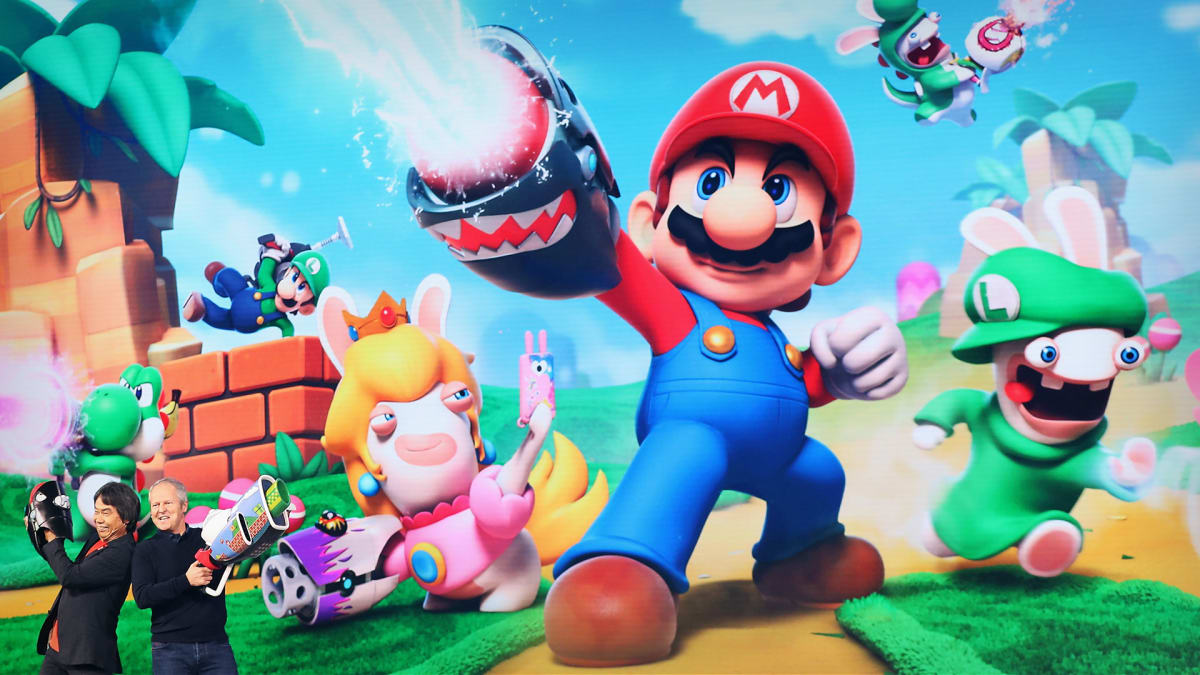
Are video game movies now…respectable?
Following the success of the past two films based on the Sega character Sonic the Hedgehog, and this Spring’s surprisingly strong box office for Nintendo's “The Super Mario Bros. Movie,” Hollywood is now on the prowl for more movies based on well-known video game characters.
Don’t Miss: American Airlines Added Yet Another Fee (You're Not Going To Like It)
For a long-time, movies based on video games had a reputation for being, well, terrible. Or at best, fun-bad guilty pleasures. But while “The Super Mario Bros. Movie” team shouldn’t clear space on the mantle for Oscar season, the Mario and Sonic films generally received reviews tantamount to “better than I thought it would be” and “if your kids make you see it, you won’t tear your eyes out.” (There’s also a lot of critics that ride for the gonzo fun of the recent “Mortal Kombat” film.)
Fans also generally liked these films, even if some are still mad that Chris Pratt voiced Mario instead of an actor of Italian descent.
Hollywood loves, loves, loves a film that can be made into a multi-sequel franchise. And if, these days, it can become a whole universe? Well, chef’s kiss. But Hollywood can also, once a certain number is attached to the making of these films, get nervous about cost, so having a proven, well known pop culture entity is always reassuring, as is a precedent that these things work. (It also helps that animated films, while not inexpensive, don’t come with the budgets required of Marvel and Star Wars films.)
As a bonus, with video game films, there’s well-known characters and an established conflict (i.e. saving the Princess, as archias as that may sound now), but there’s enough room for screenwriters to flesh out the characters and do some world building.
So now that “Mario” brought in more than a billion dollars, it’s time for Nintendos’ second-most well known franchise to step to the plate.

Nintendo
What’s Next For Nintendo?
Now, reports have come in that Universal Studios, which is owned by Comcast (CMCSA), is closing a deal for a film-length adaptation of “The Legend of Zelda.”
“I’m told that Universal is, in fact, closing a ‘big deal’ with the Nintendo corporation for The Legend of Zelda,” said Hollywood insider Jeff Sneider reporter on the latest episode of The Hot Mic podcast. “Zelda is looking like the next big Illumination-Nintendo franchise, which we were all sort of expecting. I’m told that is happening.”
Created by Shigeru Miyamoto and Takashi Tezuka, “The Legend of Zelda” debuted in 1986. An adventure fantasy somewhat in the vein of J. R. R. Tolkien, the video game follows the adventures of the Elf warrior Link, who must travel through the mystical realm of Hyrule to collect the pieces of the Triforce (aka the McGuffin of this franchise) to defeat the evil Gannon and save the Princess Zelda.
The most recent Zelda game “Tears of the Kingdom,” sold 10 million copies in its first three days of release this May, so the demand and visibility is high.
There are a few issues with the franchise, here. For one thing, “saving the princess” is rightfully pilloried these days as a very tired and sexist trope, one the Mario Bros. film avoided with Princess Peach by making her a more active character. (Also, ask any parent of a young girl their thoughts on “Princess Culture” sometime and prepare for an earful.)
It’s also the case that in the game, Link doesn’t really talk, he just makes little sounds. That is not going to work for a full-length film, and a certain type of hardcore fan will no doubt balk at this unavoidable change.
We should also point out that in many corners of the internet, Link is considered a non-binary icon. This certainly would be progressive and interesting route for the series to take. (And it will lead to some uncomfortable interviews for the directors if they decide not to go that route.)
If the film is hit, and eventual multiverse crossover with “Mario” is assured. Until then, let’s throw out our fan-casting, starting with the cold fact that Gannon should definitely be voiced by Ian McShane.
Action Alerts PLUS offers expert portfolio guidance to help you make informed investing decisions. Sign up now.







